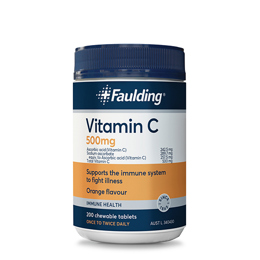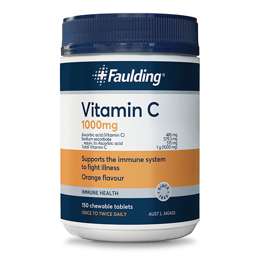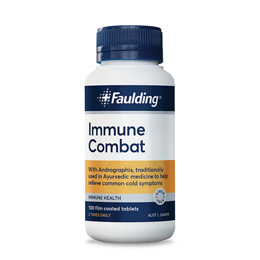Building Immunity Over 60

Building a strong immune system as you age is less of a silver bullet than some advice would have you believe. As more of an everyday commitment than a quick fix, practices that support immune health should be seen as just that – practice. The regular rituals and lifestyle habits that serve as an investment in your long-term health.
The immune system explained
The human immune system is a complex network of cells, tissues, proteins and chemicals that combine to protect us from infection. When faced with a pathogen, like a virus, bacteria or foreign matter, our bodies enact an immune response to eliminate it.
Incredibly, our immune system recalls every germ it encounters, allowing them to be identified and destroyed faster if they reappear.
Why is diet so important for immune health?
Diet is especially important when it comes to immune health, as the largest population of immune cells live in the wall of our intestines. As a healthy gut microbiome helps regulate our immune system, gut health can therefore be a good barometer of overall health.
Food is also packed with essential minerals and vitamins, many of which play an important role in supporting the immune system. The ones outlined below have well-established immunity benefits.
Best vitamins and minerals for immune health
Vitamin C
Ascorbic acid, or Vitamin C, is involved in numerous bodily functions and is necessary for the growth and repair of tissues. It’s also a vital antioxidant – aka a food compound that prevents cell damage caused by free radicals.
Find it in
Citrus fruit, capsicum, broccoli, dark leafy greens, berries, potato, cauliflower and Brussel sprouts.
Vitamin D
Vitamin D is a powerful hormone that is utilised by our immune, digestive, circulatory and nervous systems. While UV-B rays from the sun are the most potent form of vitamin D, it is also found in many foods – both naturally occurring and when fortified during preparation.
Find it in
Oily fish, egg yolks, mushrooms and foods that are commonly fortified with vitamin D, such as cow and plant-based milks, cereals and yoghurt.
Vitamin E
Vitamin E is a lipid-soluble antioxidant that enhances immune system function by promoting the T-cell growth, which in turn forms a vital part of our infection defence.
Find it in
Nuts and seeds, berries, avocado, mango, kiwi, asparagus, spinach, green beans and leafy green vegetables.
Zinc
Zinc is a vital nutrient that supports immune and metabolic health. Known to help keep our immune system firing, it also promotes wound healing.
Find it in
Poultry, red meat, beans, fortified cereals, whole grains, oysters and nuts.
Omega-3 fatty acids
This family of polyunsaturated fats has anti-inflammatory properties, and supports our immune system by activating and inhibiting different immune cells.
Find it in
Fish, vegetable oils, leafy vegetables, nuts, flaxseed oil and flaxseeds.
Selenium
Only needed in small amounts, selenium is associated with improved immunity, thyroid function, and metabolism. By lowering oxidative stress in our bodies, it reduces inflammation, and supports immune health.
Find it in
Oily fish and seafood (particularly oysters, yellowfin tuna, sardines and halibut), Shiitake mushrooms, eggs, poultry, Brazil nuts and seeds.
Dietary supplements can also help
One of the surest ways to ensure your diet is supporting optimal immune health is to take a high quality dietary supplement. Seek advice from your GP regarding what type of vitamins or minerals will support you best.





